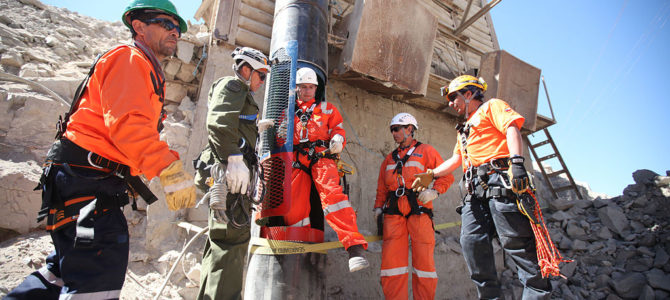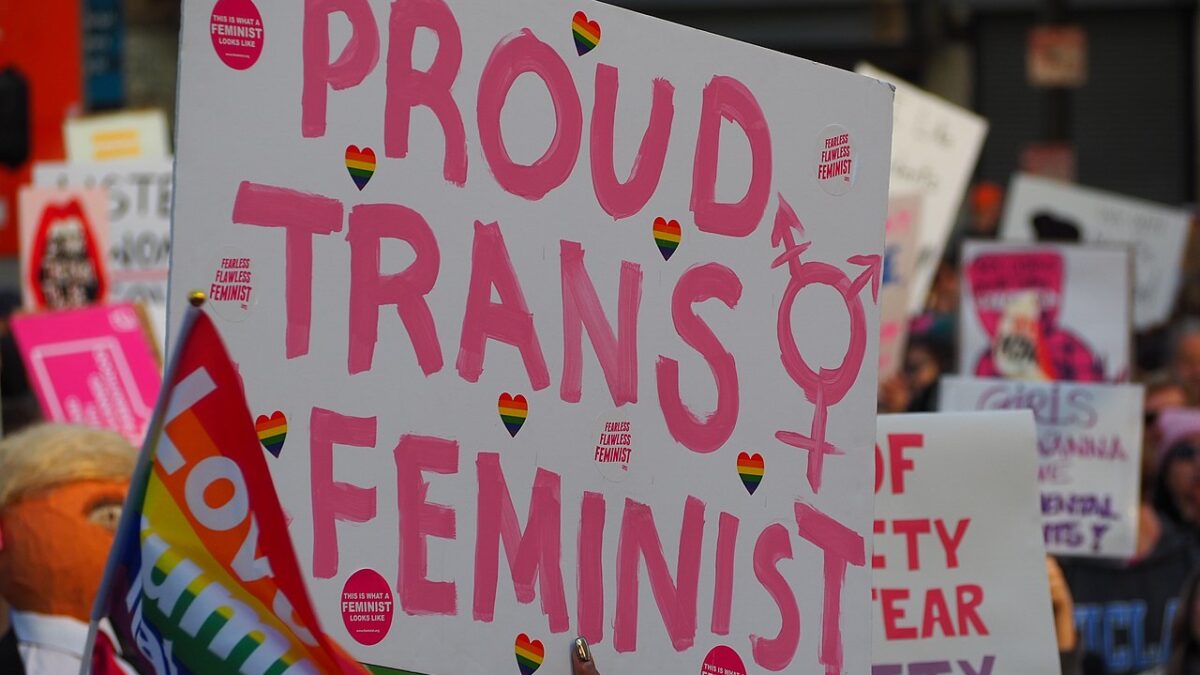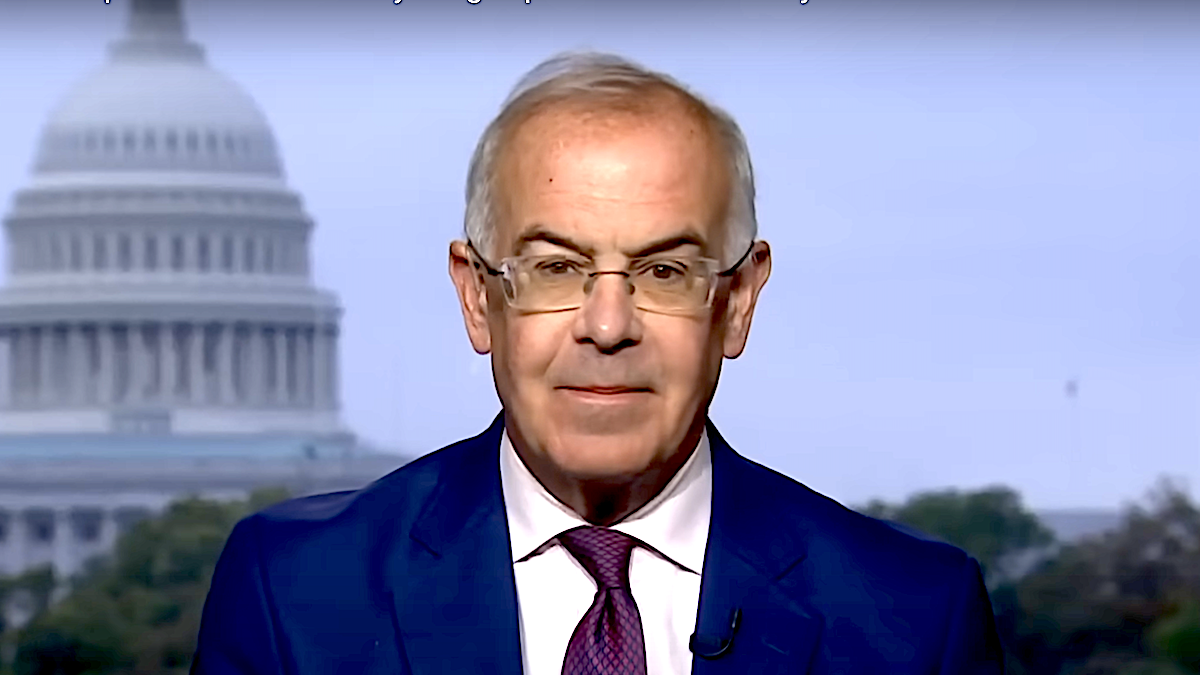
Politico posted a uniquely poor commentary last week on the real cause of mass shootings. It’s certainly not mental illness. It’s not even access to guns, per se. It’s not people coming to the end of their rope and “going postal.” What is the single motivating factor behind these massacres? Quite simple: men.
Here is what journalist Laura Kiesel actually says in her introduction: “[W]hat might really be to blame for the trend of mass shootings in America… No it isn’t mental illness. It’s gender.” Don’t roll your eyes just yet. The article presents evidence for the claim: “Of the 96 mass shootings committed since 1982, all but two were committed by men.” That’s the author’s whole case.
She goes onto to explain, correctly, how men are more likely to do very bad things. Men are responsible for the majority of gun-related deaths. They own guns at triple the rate of women. Men are three times more likely to commit suicide than women are, and do so more violently. The great majority of murder-suicides are committed by men. They commit far more violent crimes than women. This is the evidence Kiesel offers.
While piling on, she forgot to include that men have started nearly every war since the beginning of time. They commit nearly every rape. They form every gang in every community, and all major drug lords are men. It’s not women who start 99.9 percent of all bar fights or who usually gamble a family’s money away. This is not news to anyone.
This Is Absurd Reductionism
But maleness is not the reason behind suicides, wars, bar fights, domestic and community violence, robberies, and every other social pathology that are pretty much the exclusive domain of men. Countless other factors make such crimes literally unimaginable to the average person.
Picture a police official being asked by a reporter why the robbery on the north end of town happened. He replies, “We have ascertained that the cause of the robbery, in fact the cause of all robberies, is the perpetrator being male.” Would there be one person who believes this an intelligent reply? It is just as silly for Politico to make the same claim about mass shootings.
First, it is unwise and ill-informed to assign one cause to the incomprehension of mass shootings. In the debate between liberals and conservatives on policy solutions, it’s typically gun control versus improved tracking of mental illness. The Politico article argues mental illness is not the cause and references a number of studies as support. It’s simply men being men.
The “one thing” cause, however, is insultingly simplistic for such a demonic act. Most people realize this. Politicians who want to appear as “take action” problem-solvers reduce it to one thing like clockwork, but reductionism is seldom reasonable or helpful.
Men Also Predominantly Rescue the Suffering
But back to men. The author forgot to mention that the overwhelming number of people who run directly into danger to save others are men. Think 9/11, the Houston floods this summer, or the Las Vegas mass shooting. Men took action instantly in the midst of significant danger.
Women certainly acted heroically as well, but typically by protecting children or caring for victims in the aftermath. It is primarily men who take action when the bullets are flying. The article fails to mention that most police officers, firefighters, rescue workers, and military professionals fighting on the front lines for our freedoms are men.
It’s not because these professions are run by misogynists. Quite the opposite. These men risk their lives to save women and children in danger and rescue them first. If they have to choose between saving a man or woman with the same severity of wounds, men will typically help the woman first. He shuns equality in that moment without apology.
The injured man himself will likely direct the rescuer to save the woman first as well. In fact, a protest that he should be rescued first would not only be a dark stain on his masculinity, but he will likely never recover his reputation. The woman asking to be rescued first would suffer no penalty.
Masculinity Is Not Toxic
This is the very problem with the term “toxic masculinity,” whatever that actually means. Masculinity cannot be toxic. Maleness can be. Masculinity is a social virtue. Maleness just means being a male. These rescuers are masculine. Mass shooters, rapists, abusers, gang bangers, and sexual predators are not masculine.
In fact, any male who shrinks in the face of serious challenge or the danger of others cannot be called masculine. Nor can any man who uses his powers to hurt other people or enrich himself. They are merely males. These very bad men are also quite exceptional. That’s what makes them so perplexing to us all.
Consider this. When a man is praised for risking his own life to save another and asked to comment on his heroics, what is it he usually says? He doesn’t pump his arms in the air and announce how awesome he is. He will likely respond with some variation of, “I just did what anyone would do in that situation.”
He normalizes himself, and we don’t chalk it up as false humility. He wants his actions to be seen as what any good man would do. Along with him, we believe that is what men do. The mass shooter seeks to make himself exceptional, to stand out, to gain notoriety and fame. One is a man. The other? A tragically screwed-up, evil male. He may not have a clinical mental illness, but he sure ain’t right. No level-headed person is confused about this.
Masculinity is desirable as a personal characteristic. Imagine someone being described to you as being “quite masculine.” No one says, “Oh, that’s a shame!” or “Do you think he’ll get over it?” There is a qualitative difference between macho and masculine. One comes out of insecurity, the other from being centered and healthy.
Describe a woman’s blind date to her as either macho or masculine. One gets her to change the evening to just coffee and the other gets her interest. Describing the Little League coach as either will get a clear positive or negative reaction from most parents. Masculinity is largely desirable and has a positive, generally virtuous connotation to both men and women.
Manhood Lives at the Extremes
Obviously manhood lives more at the extremes of the bell curve than womanhood does. A woman is not as likely to take chances, good or bad. She is more inclined toward security and safety, more even-keeled. Men commit more murders and destroy more things, but they also start more businesses, are more likely to invent new life-saving devices and build bigger, better buildings. They set out into chartless seas in search of new worlds.
Lesbian feminist Camille Paglia makes this very point when she said there are no female Mozarts for the same reason there are no female Jack the Rippers. The male nature can tend to go to either extreme, even if much of it lives in the happy and healthy medium. Therefore, maleness must be formed and directed with great care and intentionality, much more so than femaleness. Boys are not as likely to become good men if left to their own devices. The classic novel “Lord of the Flies” is not about the dark side of human nature. It’s about the nature of raw, yet-to-be-formed maleness.
This is true across all human cultures. Margaret Mead was one of the early anthropologists to study the social nature of manhood, which she presents in “Male & Female.” From her cross-cultural observations, she explains a central anthropological truth: healthy manhood must be taught.
In every known human society, everywhere in the world, the young male learns that when he grows up, one of the things which he must do in order to be a full member of society is to provide food [and protection] for some female and her young. … every known human society rests firmly on the learned nurturing behavior of men.
Most societies recognize the good male as one who provides for, protects, and helps others become better people. He produces for others more than he consumes. His production is greater than his appetite. Manhood and masculinity are demonstrated in action. Womanhood is demonstrated in essence.
The Male Nature Cannot Be Eradicated
What is more, Mead and other leading anthropologists tell us that what men are and what they become is not determined solely by the society in which they are raised. There is a universal male nature and it is not difficult to recognize.
Of course, the Politico article makes the shop-worn and wholly disproven claim that we can overcome the natural toxicity of masculinity by eradicating it by social engineering. For them, the good man is one who acts more like a woman (and, curiously, the good woman is one who acts more like a man). Are these two phrases uttered by a parent today considered equally virtuous?
- I want to raise my daughter to be a strong woman.
- I want to raise my son to be a strong man.
Most folks see them both as noble and important parenting goals. However, at a typical university campus or fancy Manhattan cocktail party, one is judged a very dangerous statement. The Politico author might even take it to mean you want your son to become a mass shooter.
The answer to so-called “toxic masculinity” is not to raise our boys to be less like men, but to raise them to be genuine men. To be masculine does not have to be a stereotype. Can a man dance ballet and be masculine? Ask Mikail Baryshnikov. Ask Emeril if a masculine man can live in the kitchen. Ask Pavarotti if masculine men can sing opera and Monet if a manly man can paint flowers and beautiful scenes of cultured women in gardens. Of course they can, just as much as they can play football, race boats, build buildings, blow stuff up, and catch bad guys.
The Politico editorialist did get one thing right, though, while breaking a fundamental rule of progressive dogma. She admitted men and woman are indeed different in consequential ways beyond the bedroom and bathroom. But doing so seems permissible when charging that masculinity is toxic.









